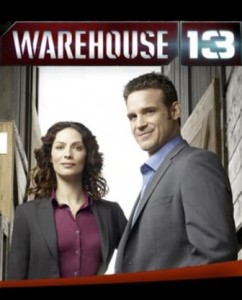Cord-cutters ditching cable for online TV
Maybe you’ve seen the TV commercial by the Canadian Institute of Chartered Accountants that’s narrated by Newfoundland-born actor Gordon Pinsent and features a series of images that include a woman crying in an office, a Charlie Chaplin-like silent movie character, and a man stomping on a flaming bag of dog poo.
 It’s a memorable ad because the images are strong, but try asking people at the next party you attend if they’ve seen it. Many won’t have, particularly if they’re under 30, and the reason you’ve seen it and they haven’t is disconcerting. You’re so old that you still watch TV.
It’s a memorable ad because the images are strong, but try asking people at the next party you attend if they’ve seen it. Many won’t have, particularly if they’re under 30, and the reason you’ve seen it and they haven’t is disconcerting. You’re so old that you still watch TV.
Yegor Jbanov is 29, lives in a downtown Edmonton condo with his wife, and likes a variety of video entertainment ranging from documentaries and movies to Futurama. But he watches all of it exclusively from online sources or from DVDs.
“I watched all of the Olympics last year. CTV had streaming video. You could choose which camera you wanted to see and you could even choose a channel without a commentator,” says Jbanov. “It meant you could watch a sport that wasn’t being covered on TV, but that you were interested in.”
The TV industry term for people who ditch cable and watch online is “cord cutters.” The numbers are still small, according to a survey produced last year by Ottawa-based Boon Dog Professional Services Inc., which found that the number of Canadians who subscribed to traditional TV services such as cable or satellite increased by 29,000 in the second quarter of 2010. It also found that digital TV was 76 per cent of the Canadian market at that point in 2010, an increase of 12 per cent over the May/June figures for 2009.
The story is similar in the U.S., where a New York Times/CBS News poll last year also determined that traditional TV service continued to grow. However, the survey found that people under age 45 were about four times as likely to say Internet could replace cable for TV services.
Salespeople in Edmonton at big electronics store chains like Future Shop, or at independents like Memory Express, say lots of people of all ages are still buying TVs as well as satellite and cable packages. Still, Mitch (not his real name) at Memory Express’s north Edmonton store estimates 75 per cent of people are downloading some shows. He says they wouldn’t need hard drives larger than 500 GB if they weren’t. But he says most people get frustrated if they rely on the Internet.
“It’s a pain in the butt. It’s more work than anything else,” says Mitch, who adds the variety of online programming is also limited, particularly if you want to watch it on a bigger screen in HD rather than a laptop. “Some stuff is available. Some isn’t.”
 Paul Turnbull, an Edmonton dad who works in the IT industry, says he has no trouble with the technical aspects of playing shows from iTunes onto his 27-inch computer monitor. But he agrees it can be difficult to track down some more obscure offerings, like a Syfy network show called Warehouse 13.
Paul Turnbull, an Edmonton dad who works in the IT industry, says he has no trouble with the technical aspects of playing shows from iTunes onto his 27-inch computer monitor. But he agrees it can be difficult to track down some more obscure offerings, like a Syfy network show called Warehouse 13.
He eventually found it as a free Torrent download, but he says he tries to avoid those because the quality is often so poor as to be unwatchable, or they won’t play at all. Occasionally, he samples shows on the Torrents before purchasing them on pay sites.
“The rule I generally abide by is that if they give me a way to pay for it, I will,” Turnbull says.
Sports can also be difficult to find online, he says, but friends have informed him things are improving.
One source for programming that Jbanov and Turnbull say they’re both using more of for downloads is Netflix. The latest movie blockbusters aren’t always there, but they say it’s easy to find and play the material. And at less than $10 a month, it’s cheap. Turnbull says even with the money he pays iTunes, and he says he pays $10 for 15 episodes of The Daily Show, it’s still less than the $50 he used to pay for satellite service from Bell every month.
“Some months I might spend more than I would on cable but I’m not watching ads. I go to friends’ places and I watch things and there’s ads and I go, ‘Oh, I don’t like these,'” he says.
Jbanov misses commercials a little bit, but not that much. It was just something that was part of the TV experience, he explains.
Another thing he misses about regular TV, and again not that much, is channel surfing.
“There’s this aspect to TV that you can turn it on and watch whatever is on,” he says. “Sometimes that’s good.”













